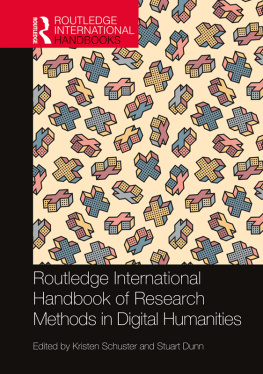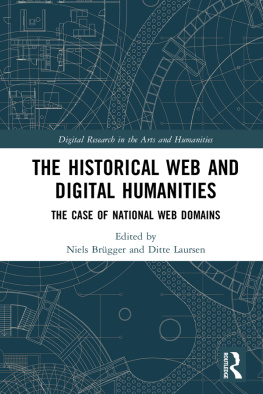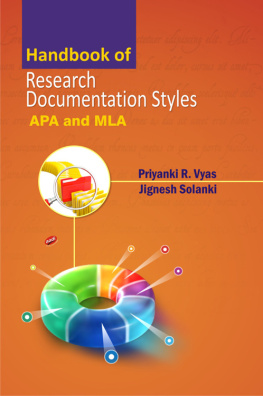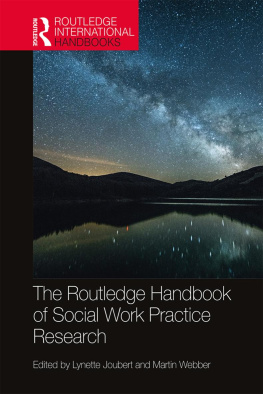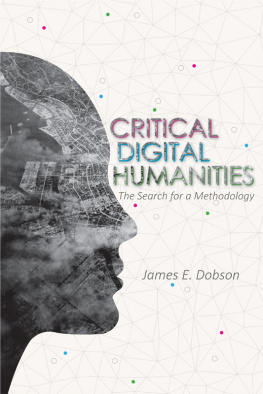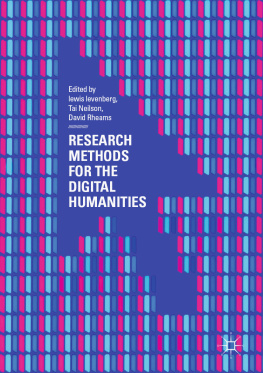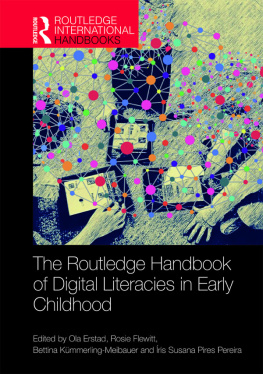Routledge International Handbook of Research Methods in Digital Humanities
This book draws on both traditional and emerging fields of study to consider what a grounded definition of quantitative and qualitative research in the Digital Humanities (DH) might mean; which areas DH can fruitfully draw on in order to foster and develop that understanding; where we can see those methods applied; and what the future directions of research methods in Digital Humanities might look like.
Schuster and Dunn map a wide-ranging DH research methodology by drawing on both traditional fields of DH study such as text, historical sources, museums and manuscripts, and innovative areas in research production, such as knowledge and technology, digital culture and society and history of network technologies. Featuring global contributions from scholars in the United Kingdom, the United States, Europe and Australia, this book draws together a range of disciplinary perspectives to explore the exciting developments offered by this fast-evolving field.
Routledge International Handbook of Research Methods in Digital Humanities is essential reading for anyone who teaches, researches or studies Digital Humanities or related subjects.
Kristen Schuster is Lecturer in Digital Humanities, King's College London.
Stuart Dunn is Senior Lecturer in Digital Humanities at King's College London. He is also a Visiting Scholar in Stanford University's Center for Spatial and Textual Analysis's Spatial History project.
ROUTLEDGE INTERNATIONAL HANDBOOKS
Routledge Handbook of Counter-Narratives
Edited by Klarissa Lueg and Marianne Wolff Lundholt
Routledge Handbook of Art, Science, and Technology Studies
Edited by Hannah Star Rogers, Megan K. Halpern, Kathryn de Ridder-Vignone, and Dehlia Hannah
Routledge Handbook of Bounded Rationality
Edited by Riccardo Viale
Routledge International Handbook of Charisma
Edited by Jos Pedro Zquete
Routledge International Handbook of Working-Class Studies
Edited by Michele Fazio, Christie Launius, and Tim Strangleman
Routledge Handbook of Digital Media and Communication
Edited by Leah A. Lievrouw and Brian D. Loader
Routledge International Handbook of Religion in Global Society
Edited by Jayeel Cornelio, Franois Gauthier, Tuomas Martikainen and Linda Woodhead
The Routledge Handbook on the International Dimension of Brexit
Edited by Juan Santos Vara and Ramses A. Wessel; Assistant Editor, and Polly R. Polak
Routledge Handbook of Critical Finance Studies
Edited by Christian Borch and Robert Wosnitzer
For more information about this series, please visit: www.routledge.com/Routledge-International-Handbooks/book-series/RIHAND
First published 2021
by Routledge
2 Park Square, Milton Park, Abingdon, Oxon OX14 4RN
and by Routledge
52 Vanderbilt Avenue, New York, NY 10017
Routledge is an imprint of the Taylor & Francis Group, an informa business
2021 selection and editorial matter, Kristen Schuster and Stuart Dunn individual chapters, the contributors
The right of Kristen Schuster and Stuart Dunn to be identified as the authors of the editorial material, and of the authors for their individual chapters, has been asserted in accordance with sections 77 and 78 of the Copyright, Designs and Patents Act 1988.
All rights reserved. No part of this book may be reprinted or reproduced or utilised in any form or by any electronic, mechanical, or other means, now known or hereafter invented, including photocopying and recording, or in any information storage or retrieval system, without permission in writing from the publishers.
Trademark notice: Product or corporate names may be trademarks or registered trademarks, and are used only for identification and explanation without intent to infringe.
British Library Cataloguing-in-Publication Data
A catalogue record for this book is available from the British Library
Library of Congress Cataloging-in-Publication Data
A catalog record has been requested for this book
ISBN: 978-1-138-36302-1 (hbk)
ISBN: 978-0-429-77702-8 (ebk)
Typeset in Bembo
by Cenveo Publisher Services
CONTENTS
Stuart Dunn and Kristen Schuster
SECTION I
Computation and connection
Briony Supple
Hetty Blades and Scott deLahunta
Sally-Jane Norman
Cornelia Reyes Acosta
Sara Marino
yvind Eide
Simon Burrows and Terhi Nurmikko-Fuller
Kristen Schuster and Vanessa Reyes
Paul Gooding
SECTION II
Convergence and collaboration
James Smithies and Arianna Ciula
Richard Gartner
A.J. Million
Foka Anna, Cocq Copplie, Buckland Phillip I. and Gelfgren Stefan
William A. Kretzschmar, Jr. and Alexandra Petrulevich
SECTION III
Remediation and transmission
Vicky Garnett and Eliza Papaki
Barbara McGillivray
Christopher Ohge and Charlotte Tupman
Hannah Smyth, Julianne Nyhan and Andrew Flinn
Christopher Gilman, Jacob Alden Sargent and Craig Dietrich
Kristen Mapes
Benjamin Wiggins
Mia Ridge
Rebecca A. Croxton
Dinara Saparova
Nicholas Proferes
Kenneth Haggerty
Brit Kelley
We would like to thank the authors who contributed their time and expertise so generously to this volume. We are also very grateful to Hannah Shakespeare and her team at Routledge, who have been a constant source of patient support.
Stuart Dunn and Kristen Schuster
Introduction
In his 1965 classic satire of sex, Catholicism and the PhD, The British Museum is Falling Down, David Lodge describes an evening sherry party in the Comparative Literature department of an unnamed central London university. At the event, the Head of the Department sits in a corner, drinking with the two technicians who look after his pride and joya computer which generates concordances of texts. Only very senior members of academic staff dare to approach this coterie; most would never be admitted.
This literary depiction paints a picture of a conventional (humanities) research environment with its own rules, power structures and modi operandi; in which those who can work a computer the techniciansare afforded a special, privileged access to the environment's intellectual and social apex. Yet admission is granted on restricted terms: they provide support and assistance, acting as accelerators and amplifiers of the Professor's achievements, which are in turn embedded in (and reinforced by) the social structures on display. Their reward is a purely transactional one for services rendered, services being the operative term. And they would certainly never be drawn on the meanings and interpretations of concordances they produced for the field of Comparative Literature.
In contrast, at the same time as this book was written, researchers, practitioners and scholars were beginning to ask questions about the impact of nascent computational networks of communication on the knowledge they enabled; and how these might drive, enable, or even determine human decision making, and indeed human thought itself. In 1960, five years before the publication of

